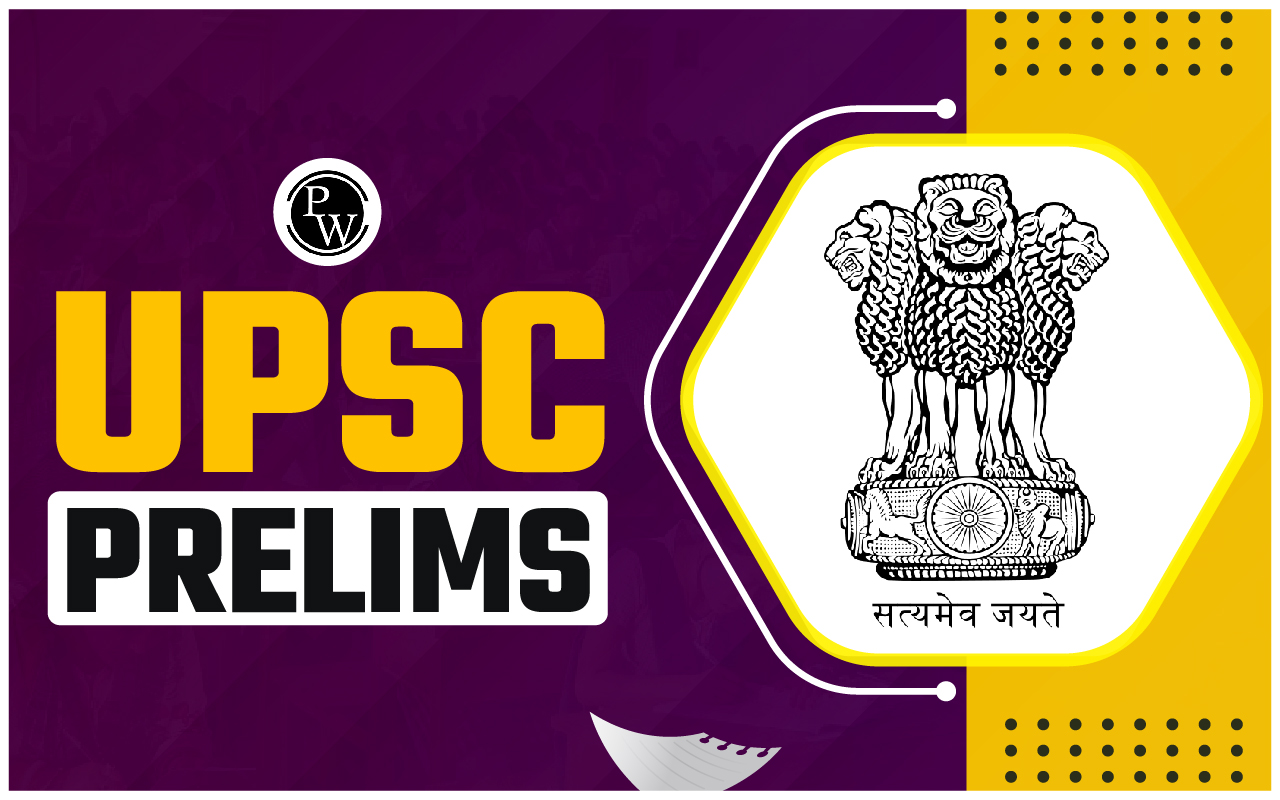
The table below contains the detailed UPSC Syllabus 2025 for Current Affairs 2025 topics based on past years' questions:UPSC Prelims Current Affairs Syllabus plays an important role in shaping your preparation strategy. Current affairs questions test your awareness of events happening around the world and their impact on India. From national and international news to environmental changes, the syllabus covers a wide range of topics, making it an integral part of the IAS preparation.
For aspirants aiming to clear the UPSC Prelims 2025, understanding how to study current affairs effectively can make a huge difference in your performance. Keep reading to find out UPSC Prelims Current Affairs Syllabus for the IAS 2025 exam.UPSC Prelims Current Affairs Syllabus 2025
In recent years, the UPSC Prelims Current Affairs Syllabus for GS Paper 1 has expanded to include indirect questions, connecting current events to static portions of the syllabus. For example, questions on a new government policy may link back to constitutional provisions or significant laws. Current affairs topics in GS 1 are typically drawn from the following categories:- National and International News: Stay updated with major events and developments in India and around the world. Understand their significance, impact, and implications.
- Government Policies and Programs: Familiarise yourself with various government schemes, initiatives, and policies at the national and state levels. Understand their objectives, implementation strategies, and outcomes.
- Economic Indicators and Budget: Follow economic indicators such as GDP growth, inflation rate, fiscal deficit, etc. Also, analyse the annual budget, its allocations, and proposed policy changes.
- Social and Environmental Issues: Stay informed about social issues like poverty, education, healthcare, gender equality, etc., and environmental concerns such as climate change, biodiversity loss, pollution, etc.
- Science and Technology: Keep track of advancements in science and technology, including space exploration, biotechnology, information technology, etc., and their applications in various sectors.
- International Relations: Understand India's relations with other countries, regional groupings, and major international organisations. Follow key diplomatic developments, agreements, and conflicts.
- Legal and Constitutional Issues: Stay updated with significant judgments, amendments, and debates related to the Indian Constitution, judiciary, and legal system.
- Cultural and Artistic Developments: Be aware of cultural events, festivals, literary awards, and artistic achievements both nationally and internationally.
- Sports: Although not as crucial, having a general awareness of major sports events, tournaments, and achievements can be beneficial.
UPSC Prelims Subject Wise Current Affairs Syllabus 2025
The table below contains the detailed UPSC Syllabus 2025 for Current affair 2025 topics based on past year's questions:| UPSC Prelims Current Affairs Syllabus | |
| Subject | Topics |
| 1. National Current Affairs |
|
| 2. International Current Affairs |
|
| 3. Social Issues |
|
| 4. Polity and Governance |
|
| 5. Economy |
|
| 7. Defence and Security |
|
| 8. International Organizations and Summits. |
|
| 9. Environment & Geography |
|
| 10. Art and Culture |
|
| 11. Awards and Recognitions |
|
| 12. Government Schemes |
|
| 13. Sports |
|
UPSC Prelims Current Affairs Syllabus 2025 PDF Download
The UPSC Prelims Current Affairs Syllabus for 2025 includes a broad spectrum of topics, emphasizing national and international importance. It covers current events in areas such as polity, economy, geography, environment, science and technology, and international relations. To download the detailed syllabus in PDF format, you can click on the link below for comprehensive preparation:
UPSC Prelims Current Affairs Study Material
To cover the UPSC Prelims Current Affairs Syllabus for 2025 effectively, follow the below sources:
Newspapers
- The Hindu: It provides in-depth analysis of current affairs topics relevant to UPSC.
- Indian Express: It often presents diverse viewpoints on various issues, helping candidates develop a balanced understanding.
Websites
- Press Information Bureau (PIB): The official communication arm of the Government of India to get updates and notifications on government policies, schemes, and initiatives.
- Daily Current Affairs by PW OnlyIAS: PW OnlyIAS provides one stop platform for daily current affairs, which is important for covering UPSC Prelims Current Affairs Syllabus 2025.
Magazines
- Current Affairs Magazines: PW OnlyIAS's monthly current wallah monthly magazines offer summaries of important events.
- Yojana: Published by the Government of India, Yojana focuses on socio-economic issues and government schemes, providing in-depth analysis and insights into various policy matters.
- Kurukshetra: Another publication from the Government of India, Kurukshetra primarily deals with rural development issues, agriculture, and related policies, which are important for the UPSC exam.
Editorials
- Economic and Political Weekly (EPW): A journal focusing on economic, political, and social issues. It provides critical analysis and research articles on a wide range of topics relevant to UPSC.
- Editorial Analysis by PW OnlyIAS: An editorial that focuses on enhancing your UPSC exam readiness with their thorough editorial analysis publication. Acquire a deeper insight into crucial topics, contemporary developments, and editorial viewpoints sourced from publications such as The Hindu and Indian Express.
Preparation Strategy for UPSC Prelims Current Affairs Syllabus
Preparing for the UPSC Prelims requires a comprehensive strategy, especially for covering the current affairs syllabus. Below is a comprehensive preparation strategy for covering UPSC Prelims Current Affairs Syllabus:- Understand the Syllabus: The first step is to thoroughly understand the current affairs portion of the UPSC Prelims syllabus. It usually includes topics like national and international events, government programs, policies, reports, etc.
- Regular Reading of Newspapers: Start reading reputed newspapers like The Hindu, Indian Express, or others regularly. Focus on the national news, editorials, and sections dedicated to government policies and schemes.
- Monthly Magazines: Refer to monthly current affairs magazines like Yojana, Kurukshetra, and PW OnlyIAS Monthly Magazine. These magazines summarise important events and issues of the month.
- Compilation of Notes: Maintain a separate notebook or digital document to compile important current affairs topics. Organize them by subject or category for easy revision.
- Weekly/Biweekly Revision: Set aside time every week or every two weeks for revising the current affairs topics you've studied. This helps in retaining information and identifying areas that need more focus.
- Focus Important UPSC Current Affairs: Prioritise important current affairs topics for UPSC Prelims 2025 to ensure that you are well-prepared for the unpredictable nature of UPSC’s current affairs questions.
- Mock Tests and Analysis: Take regular mock tests to assess your preparation level. Analyse your performance to identify strengths and weaknesses, and work on improving them.
Ready to take your preparation to the next level? Join PW UPSC Courses and get the guidance you need for the IAS 2025 exam!
UPSC Prelims Current Affairs FAQs
What is the syllabus of current affairs for UPSC Prelims?
Can I skip current affairs for UPSC?
How to prepare current affairs for prelims UPSC?
How many marks are allocated to current affairs in the UPSC Prelims exam?

UPSC Coaching







